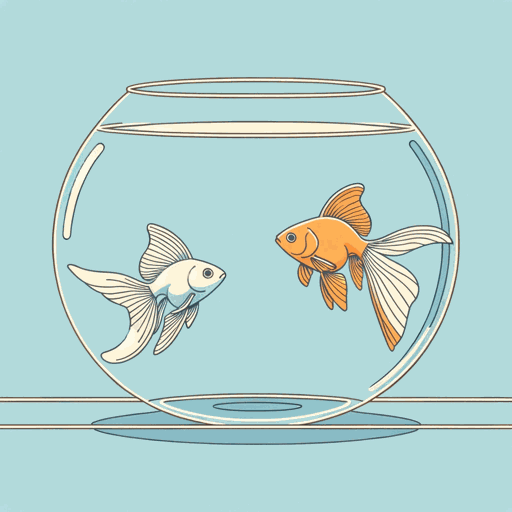18 pages • 36 minutes read
Grace Chua(Love Song, With Two Goldfish)
Fiction | Poem | Adult | Published in 2003A modern alternative to SparkNotes and CliffsNotes, SuperSummary offers high-quality Study Guides with detailed chapter summaries and analysis of major themes, characters, and more.
Literary Devices
Anthropomorphism
Anthropomorphism is the attribution of human characteristics, manners, and values to a non-human animal or object (“Anthropomorphism.” Oxford Language, Google / Oxford University Press). Chua anthropomorphizes the goldfish by giving them the human experience of limerence as well as the ability to engage in the practice of courtship behaviors that lead to a complex range of emotions.
The poem begins with a characterization of the male goldfish as bored and passive, yet not without charm. The characterization of the female goldfish reveals a flirtatious and playful individual, who, the reader may infer, has high hopes for her future with the male goldfish, until she doesn’t. These descriptions capture the goldfish characters in the poem, yet they are very human terms by which to describe them, human terms that depict a common interaction between two heterosexual human beings of the opposite sex.
In the last stanza, the act of talking further anthropomorphizes the goldfish. The female goldfish tells her lover that she wants “a life / beyond the / (bowl)” (Lines 26-28). He cannot give her what she wants, and her remarks suggest that the goldfish then engage in a break-up conversation or fight.

